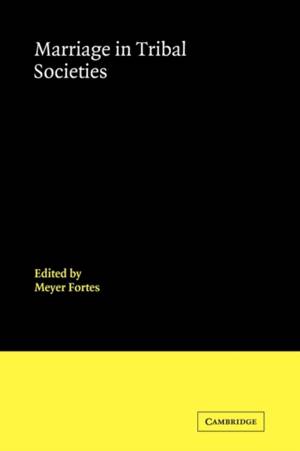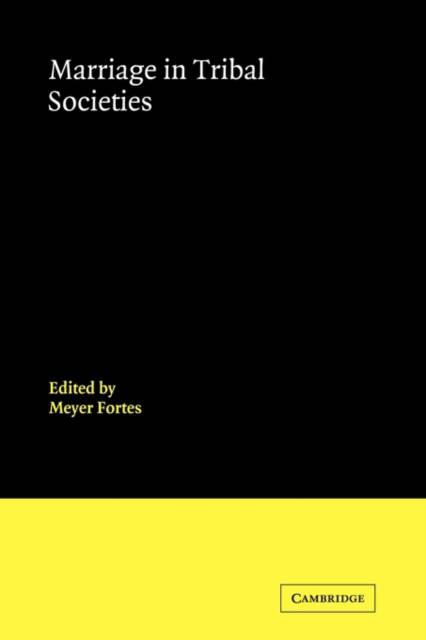
- Afhalen na 1 uur in een winkel met voorraad
- Gratis thuislevering in België vanaf € 30
- Ruim aanbod met 7 miljoen producten
- Afhalen na 1 uur in een winkel met voorraad
- Gratis thuislevering in België vanaf € 30
- Ruim aanbod met 7 miljoen producten
Zoeken
Marriage in Tribal Societies
€ 60,95
+ 121 punten
Omschrijving
Continuing a policy of devoting a whole issue to a single topic, the third volume of the series deals with aspects of marriage in tribal societies. Three papers by Esther Goody, Grace Harris and Jean La Fontaine give accounts of observations in African tribal societies; the fourth, by Marguerite Robinson, is a reassessment of Malinowski's data on the Trobrian islanders. Marriage in tribal societies is a transaction: it is also an institution with a place in the social structure. Status in marriage is seen as a crucial issue. The movement from filial to conjugal status in a first marriage is fundamental and irreversible; it is not diminished by subsequent divorce and remarriage. The partners may change, the status remains. Nevertheless, the rights and obligations of marriage, once authorised, are meant to be respected by all others. Hence the jural penalties for adultery. These are some of the themes which initiate important theoretical discussions in these papers. In his introductory essay Professor Fortes unifies the material, notes the important generalizations which emerge, and points the way to further research.
Specificaties
Betrokkenen
- Uitgeverij:
Inhoud
- Aantal bladzijden:
- 168
- Taal:
- Engels
- Reeks:
- Reeksnummer:
- nr. 3
Eigenschappen
- Productcode (EAN):
- 9780521109208
- Verschijningsdatum:
- 29/06/2009
- Uitvoering:
- Paperback
- Formaat:
- Trade paperback (VS)
- Afmetingen:
- 152 mm x 229 mm
- Gewicht:
- 254 g

Alleen bij Standaard Boekhandel
+ 121 punten op je klantenkaart van Standaard Boekhandel
Beoordelingen
We publiceren alleen reviews die voldoen aan de voorwaarden voor reviews. Bekijk onze voorwaarden voor reviews.










